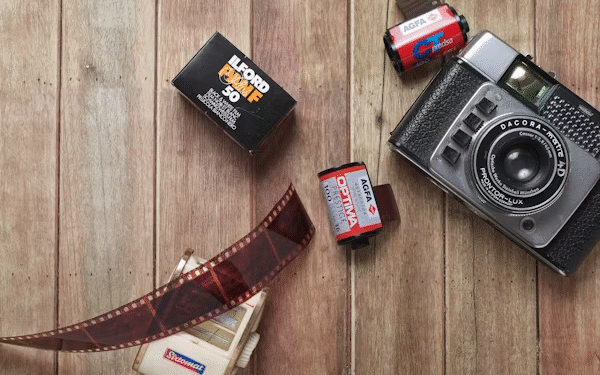Manufacturers are under more pressure than ever to streamline processes, cut costs, and mitigate any negative environmental impacts. An increasingly popular solution to these challenges is roll stock film packaging. This specific packaging form serves as a flexible packaging film manufacturer of choice as it provides operational efficiency alongside improved waste, cost, and environmental performance.
This guide will discuss the function of roll stock film, its environmental and economic benefits, and its growing popularity among the more progressive B2B operators in the food, beverage, personal care, and pharmaceutical industries.
What is Roll Stock Film and Its Benefits
Roll stock film is a type of flexible packaging material that is in a roll and is meant to be used with form-fill-seal (FFS) machines. Unlike pre-made pouches, manufacturers can order custom sized packages in-line during production, making it a highly versatile choice.
Key advantages include:
- Material Customization: Specialists can create tailored films from PET, PE, BOPP, or even multi-layer laminates and have specific barrier properties.
- Branding Potential: Achievable with full-surface printing for impactful designs with many options for textures and finishes.
- Operational Flexibility: Can operate with vertical and horizontal FFS systems for different product categories.
- Waste Reduction: Offers just-in-time packaging for lower inventory levels and materials held.
For those looking for a reliable flexible packaging film manufacturer, roll stock film provides the versatility to penetrate different markets without compromising on quality and operational efficiency.
How roll stock film helps to reduce packaging waste
One of the key advantages of roll stock film is the capability to reduce packaging waste dramatically. For many sectors, this is not only a green initiative—but also, a way to contain costs, and meet compliance mandates.
Waste reduction is achieved through:
- Custom Sizing: Waste is significantly minimized with on-demand produced bags as compared to pre-made bags due to the on the line forming method.
- Fewer Damaged Units: Lower product and packaging waste occurs with the automated sealing method due to the minimized chances of defective or poorly sealed packages.
- Optimized Film Usage: Less scrap is produced due to the continuous roll of film which allows for precision cuts.
- Sustainable Material Options: Selectable films that are compostable or recyclable aid in reducing landfill waste.
While working side by side with clients, a flexible packaging film manufacturer can optimize film gauge, barrier layers, and sealing to reduce material waste without impacting efficiency.
Sustainable roll stock film benefits:
- Recyclable Materials: Films made of one material that fit into recycling streams as overall waste.
- Compostable Films: Films made from organic sources that degrade into compost within a plant-based composting environment.
- Lightweight Packaging: Less raw material used leads to reduced carbon emissions from manufacturing and transportation.
- Longer Shelf Life: Enhanced barrier protective measures for products reduce spoilage and waste.
By choosing a flexible packaging film manufacturer that uses eco-friendly films, businesses can fulfill sustainability goals and maintain performance and film aesthetics.
Uses in Several Industries
The versatility of roll stock film enables it to serve various product categories, making it a cost-efficient solution for manufacturers who are catering to multiple markets.
Common applications include:
- Food & Beverages: High barrier films benefit snacks, coffee, frozen foods, and powdered drink mixes.
- Pet Products: Heavy duty laminates are capable of retaining appealing designs while withstanding bulk contents.
- Pharmaceuticals & Supplements: Moisture, oxygen, and light sensitive goods are defended from these elements.
- Personal Care: Freshness and hygiene are upheld in single-use sealed sachets, wipes, and samples of cosmetics.
Appropriate material selection and print capabilities enable customization of roll stock to fulfill functional and branding needs of every industry segment.
Customization for Branding and Marketing
Packaging serves as an important functional element and as a powerful marketing tool for a product. Through roll stock film, brands have to complete design creative freedom, giving them an opportunity to stand out in a crowded shelf.
Branding features include:
- High-Definition Printing: Ensure powerful graphics and vibrant colors through digital or rotogravure printing.
- Special Finishes: Add a matte, gloss, or soft-touch for a visual and tactile enhancement coating.
- Clear Windows: Barrier protection is kept while consumers can still see the product.
- Smart Packaging Elements: QR codes, scannable promotions, and design smart packagable elements.
Dumping customizable roll stock surfaces into a cohesive marketing strategy allows brands to narrate their story, educate, and engage consumers, transforming them into a work for consumers and marketing.
The Role of Automation in Waste and Cost Reduction
Efficiency comes in the form of automation. Roll stock’s form-fill-seal machines are best suited for roll stock film as they require high speed and minimal waste.
Benefits include automation:
- Precise Sealing: Reduced product loss through failures in seals.
- Consistent Sizing: Aligned pack size variability meets specification.
- Reduced Labor Requirements: Less manual actions leads to lower staff requirements.
- Faster Changeovers: Easy film roll changes minimize downtime.
The measurable cost reductions and stability in production occur due to the efficiency improvements that accumulate over a period of time.
Collaborating With The Best Manufacturer of Flexible Packaging Film
They can leverage the full potential of roll stock film and maximize efficiency only when the right supplier is chosen. The best partner is one who not just focuses on quality, but also offers guidance on the production processes.
Supplier Specification List:
- Material Knowledge: Understanding of the barrier properties and how they relate to the specific products.
- Printing Capabilities: Ability to produce durable and high-resolution graphics that can withstand the test of time.
- Sustainability Credentials: Access to films that can be recycled, composted, or are of bio-based origin.
- Regulatory Compliance: Films which are compliant to food safety regulations and the industry standards.
- Technical Support: Support to the processes in terms of the required machinery and its optimization.
Through these partnerships, not only is the roll stock film seamlessly integrated into the workflow, but it also fulfills the functional and marketing requirements.
The Upcoming Phases in the Packaging of Roll Stock Film
With roll stock film, the entire packaging industry is on the frontline of development and the industry is changing quickly.
Upcoming primary focuses are:
- Films that are more intelligent: Films that are capable of indicating the freshness or measuring the temperature.
- Sustainability Advances: Closed-loop systems that have more advanced recycling processes.
- Increase in Digital Printing: Targeted advertising at low volumes for greater customizable marketing.
- Tecnologías de Materiales: Nuevos avances en la barrera de desempeño de películas encapsuladas más ligeras y resistentes.
Para estos líderes de la industria, estas novedades constituyen una importante oportunidad de agregar valor por estrategia de demanda y por sostenibilidad.
Cierre
Packaging roll stock film representa un desperdicio mínimo de recursos, ahorro de costos y construcción de marca, en la práctica un valor potente para usar por las empresas en muchas industrias. Con un fabricante de películas para empaques flexibles las compañías pueden aprovechar muchas operaciones de flexibilidad, sostenibilidad, y mercadeo que estos empaques ofrecen en múltiples paradigmas.
Desde un ahorro de recursos en materiales, un aumento en la velocidad de la producción y la mejora de credenciales de sostenibilidad, el film roll stock no es solo más que un empaque, es un activo estratégico. A medida que la tecnología y materiales continúan innovando, el film roll stock va a acentuar su importancia en el diseño de la futura sostenibilidad y eficiencia de empaques, ayudando a las empresas a balancear su economía y el medioambiente.













